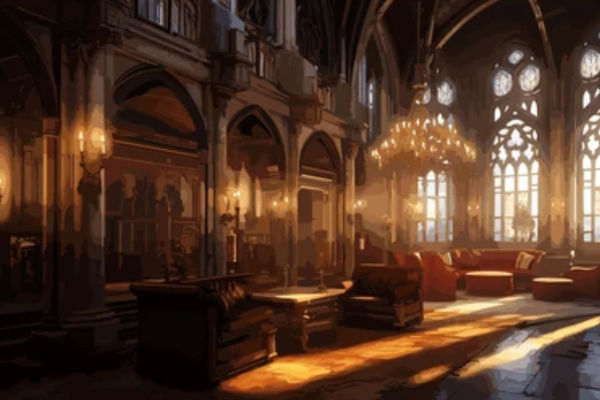When the Night Falls Book Read Online Review

So, in “When The Night Falls,” Moonlight dives into life’s relatable chaos—defying expectations, dealing with work drama, and chasing those big opportunities. Jasmine, our guide, is that friend who gets what it’s like to face societal norms and tough jobs. It’s a shared journey (well, not exactly but you get the point) making “When The Night Falls” a chill, relatable escape.
See the next awesome story now.
Read Montana Nights- Part 1: Plot Summary of When the Night Falls
- Part 2: The Characterization in When the Night Falls
- Part 3: Analysis of Author’s Writing Style and World-building Technique
- Part 4: Concluding Thoughts on When the Night Falls
Part 1: Plot Summary of When the Night Falls

In the intricately spun narrative of “When the Night Falls,” Moonlight invites us to a dramatic tableau where the mundane struggles of life take center stage. Jasmine Gibson, a protagonist ensnared in the tumult of financial turmoil and familial expectations, becomes a focal point for the scrutiny reminiscent of a certain well known author’s acerbic commentaries.
Moonlight doesn’t sugarcoat the banality of Jasmine’s predicament. The opening act thrusts readers into the gritty reality of financial strife and familial discord, portraying a theatricality of life where societal norms are challenged with unapologetic audacity.
The million-dollar proposition, introduced by a mysterious woman, acts as a catalyst for Jasmine’s grand entrance into the world of Mr. Jefferson. Moonlight’s pen dissects the allure of wealth and the enigma surrounding Mr. Jefferson, creating a narrative tension that keeps the audience on the edge of anticipation.
The societal nuances and dichotomies are painted with strokes of satire. The rejection of an arranged marriage becomes a rebellious note in this symphony of shadows and desires. Moonlight crafts a stage where characters perform a dance between tradition and rebellion, and the shadows themselves become players in the unfolding drama.
In Moonlight’s world-building, we find echoes of certain author’s social critiques – a setting that transcends mere backdrop to become a character in its own right. Shadows conceal and reveal secrets, much like societal expectations that both shroud and unmask the characters within the narrative.
“When the Night Falls” emerges not only as a story but as a satirical commentary on societal norms, financial strife, and the perpetual allure of the unknown. Moonlight, in the spirit of Shaw, orchestrates a theatrical performance where the complexities of human existence are laid bare, inviting readers to reflect on the dance of desperation and opportunity on the grand stage of life.
Part 2: The Characterization in When the Night Falls
Jasmine’s Character Exploration

In the unfolding of “When The Night Falls,” Jasmine emerges as a resilient yet vulnerable protagonist, traversing the chaotic seas of life. Disowned by her parents for rebuffing an arranged marriage, Jasmine embodies a modernity challenging societal norms. Her journey to a desperate job seeker showcases her tenacity in the face of adversity.
The toxic dynamics unveil layers of Jasmine’s strength as she deals with both professional degradation and financial entanglement. Her desperation transforms into curiosity when Iris offers a mysterious lifeline, marking a pivotal shift in Jasmine’s trajectory. As she delves into the million-dollar childcare job, readers witness a multidimensional character poised at the intersection of resilience and vulnerability, making Jasmine a captivating focal point in the novel.
Jasmine reminds me of something: Imagine clutching an opportunity, glittering like a one-in-a-million gem, yet your heart’s uneasy whispers hint at the catch. It’s this colossal, shiny thing, a potential game-changer, but lurking beneath is the awareness that seizing it might unravel unforeseen consequences. There’s a magnetic pull, a dance between ambition and apprehension, making the decision to protect it akin to holding a dazzling, fragile treasure, uncertain of the storm it might unleash.
Theodore Jefferson’s Character Exploration

Theodore Jefferson, a mysterious and controlling force in “When The Night Falls,” stands as the enigmatic puppeteer behind Jasmine’s emotional turbulence. As Thea’s father and Jasmine’s boss, Jefferson’s characterization is shrouded in an air of secrecy and dominance. Moonlight crafts him as a figure with an uncanny ability to manipulate the narrative’s threads.
Jefferson’s aura of control adds a layer of tension, inspiring both curiosity and trepidation. His character resonates with a sense of foreboding, as if he holds the keys to hidden truths within the story. The emotional turbulence he Induces in Jasmine serves as a testament to his influence, leaving readers questioning his motives and anticipating the revelations that may unfold. Jefferson becomes not just a character but a symbol of the mysterious forces that shape the intricate dance between shadows and desires in “When The Night Falls.”
Are you ready for the next amazing title? Check it.
Part 3: Analysis of Author’s Writing Style and World-building Technique

In the exploration of “When The Night Falls,” the settings are amazing landscapes that encapsulate the characters’ struggles and chaotic experiences. Moonlight, with adept strokes, paints an immersive canvas, plunging readers into a world where the tangible and intangible coalesce. The settings are not described; they are felt, evoking a palpable sense of presence.
The opulence of Theodore Jefferson’s world contrasts sharply with the mundane struggles of Jasmine’s life. Moonlight meticulously crafts this duality, with dimly lit corridors echoing Jasmine’s financial tribulations and the lavish surroundings of Mr. Jefferson’s domain symbolizing wealth and mystery. The settings become characters in their own right, influencing and reflecting the emotional tones of the narrative.
Moonlight’s world-building extends beyond physical spaces; it delves into societal nuances. The toxic workplace, where Jasmine faces professional degradation, is not just a setting but more a microcosm of societal power dynamics. This practical portrayal adds layers to the narrative, inviting readers to dissect the intersections of professional life and personal struggles.
Effortlessly, Moonlight navigates the contours of this literary terrain, creating a world that breathes with its own rhythm. The author’s careful attention to detail transforms settings into atmospheric elements that intensify the emotional impact of the narrative. The tangible sensations of financial strain and familial estrangement meld seamlessly with the intangible mysteries shrouding Mr. Jefferson’s realm.
The author’s skill In world-building doesn’t rest solely on mere visual descriptions. It practically extends to emotional zones, inviting readers to feel the chill of financial despair and the allure of a million-dollar opportunity. Moonlight’s narrative brushstrokes don’t just depict; they sculpt a living, breathing world that pulsates with the heartbeat of its characters. In “When The Night Falls,” the settings aren’t waypoints; they are emotional anchors, grounding the characters in a realm where shadows conceal secrets, and desires intertwine with the fabric of existence.
Part 4: Concluding Thoughts on When the Night Falls

In the captivating embrace of “When The Night Falls,” the narrative becomes a shared journey, inviting readers to find echoes of their own experiences within its pages. Moonlight’s tale transcends the confines of fiction, creating a space where the universal struggles of autonomy, professional challenges, and the yearning for transformative opportunities unfold.
The protagonist, Jasmine, embodies a defiance against societal norms that many readers may recognize from their own lives. The rejection of imposed expectations becomes a poignant reminder of the collective battles we face in asserting our individuality. It’s a narrative that resonates, acknowledging the shared struggles woven into the broader fabric of our personal stories.
Jasmine’s navigation through a toxic workplace strikes a chord with anyone who has faced the emotional toll of professional adversity. Moonlight skillfully portrays the intricate power dynamics within workplaces, reflecting the common experiences that many readers can relate to in their professional journeys.
The mysterious opportunity presented by Iris becomes a symbol of shared human aspirations. It’s a nod to the universal desire for transformative possibilities amidst life’s trials, connecting readers to the characters’ yearning for something more.
As Jasmine delves into the enigmatic world of Mr. Jefferson, readers are invited to navigate their own emotional landscapes. The shadows of mystery, the dance between wealth and destitution, evoke a collective sense of facing the unknown in our own lives. Moonlight’s storytelling acts as a mirror, reflecting the complexities of desires and uncertainties that resonate with each reader’s personal narrative.
“When The Night Falls” is a communal exploration of the human condition. It beckons everyone to see their own reflections in the characters’ struggles, creating an inclusive and immersive experience that lingers for a really long time.
If you like a great, weirdly passionate love story like this, you’ll love the next story even more.
Read Montana Nights


